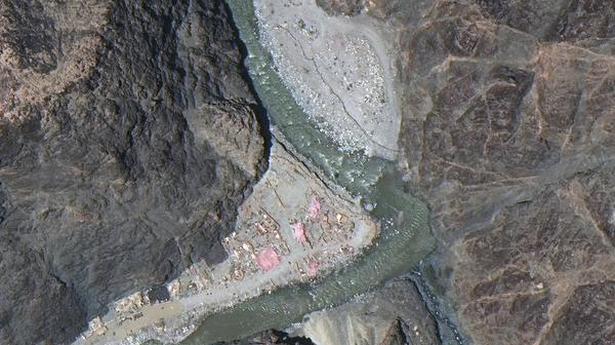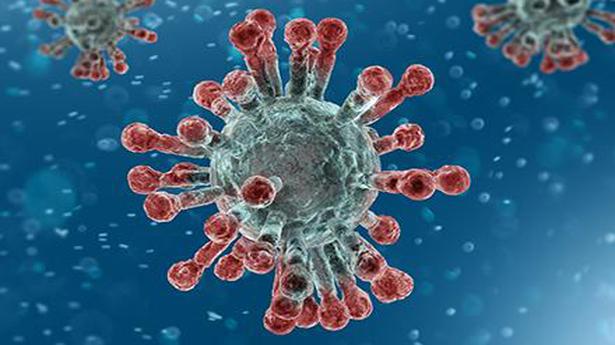| Welcome to the Evening Wrap newsletter, your guide to the day's biggest stories with concise analysis from The Hindu. We hope you are staying safe. Here are the big stories that you need to follow today:
Free food grains scheme on till November: PM
Prime Minister Narendra Modi, in his address to the nation today announced that the free food grains scheme for poor families will be extended till November. This was his sixth address to the nation since the outbreak of Covid-19. It comes on the heels of fresh guidelines issued by the Ministry of Home Affairs on Monday, further relaxing lockdown restrictions from July 1 as part of the 'Unlock-2' phase. Highlights of PM's speech: - The Pradhan Mantri Gareeb Kalyan Anna Rozgar Yojana, under which 80 crore people have been getting 5 kg rations and 1 kg of dal (cereal) per month free of cost, is being extended till November-end. The scheme will cost ₹90,000 crore to the exchequer.
- Bringing in One Nation One Ration Card for the whole country. This will greatly benefit migrant workers and their families.
- As we enter Unlock-2 in the battle against coronavirus, we are also entering a season that will see a lot of rain, and people will be more prone to diseases. So, it is my appeal to everyone to take all the necessary precautions.
- People not following safety rules in the context of the pandemic need to be stopped and educated. Nobody – not even the leader of the nation -- is above rules in India.
China voices 'strong concern' over apps ban A day after India banned 59 apps with Chinese links, China voiced strong concerns over the move, saying the Indian government has the responsibility to uphold the "legitimate and legal rights" of international investors. India on Monday banned 59 apps with Chinese links, including the hugely popular TikTok and UC Browser, for engaging in "activities which are prejudicial to sovereignty and integrity of India, defence of India, security of state and public order." At a Chinese Foreign Ministry briefing, spokesman Zhao Lijian said China is strongly concerned about the relevant notice issued by the Indian side and are checking and verifying the situation. "I want to stress that the Chinese government always asks Chinese businesses to abide by international rules, and local laws and regulations in their business cooperation with foreign countries," he said. The Indian government has the responsibility to uphold the legitimate and legal rights of international investors, including Chinese ones, he added. BJP talks of 'Make in India' but buys from China: Rahul Taking a dig at the Narendra Modi government's record on imports from China, Congress leader Rahul Gandhi alleged that the BJP talks of 'Make in India' but buys from China. "Facts don't lie. BJP says: Make in India. BJP does: Buy from China," Gandhi tweeted. In his tweet, he tagged a graph that compared the volume of imports from China during the BJP-led National Democratic Alliance (NDA) government, and the Congress-led United Progressive Alliance (UPA) regime. The graph showed that India's imports from China as a total percentage of its GDP grew from a little over 12% in 2009 (under UPA) to over 18% in 2018 (under NDA). The graph, however, showed a steady decline in India's purchases from China between 2018 and 2020. Third round of Corps Commander-level talks underway Talks between Corps Commanders of India and China began at Chushul in Ladakh today morning. The aim has been to reduce tensions along the border, as earlier efforts at de-escalation had failed on the ground.  Maxar WorldView-3 satellite image shows close up view patrol point 14 in eastern Ladakh sector of Galwan Valley on June 22, 2020. Maxar WorldView-3 satellite image shows close up view patrol point 14 in eastern Ladakh sector of Galwan Valley on June 22, 2020. The talks between Lt. Gen. Harinder Singh, General Officer Commanding of the Leh-based 14 Corps and Maj. Gen. Liu Lin, Commander of the South Xinjiang Military District, began at the Border Meeting Point at Chushul on the Indian side. The earlier rounds of talks were held on the Chinese side. At the second round of talks on June 22, the two sides had come to a "mutual consensus" to disengage along the Line of Actual Control (LAC) and defence sources had stated that modalities for disengagement from all friction areas in Eastern Ladakh were discussed and would be taken forward. However, there has been no tangible progress since. Imminent flood threat in Bihar With four rivers flowing above danger level, the threat of floods looms large in parts of north Bihar. The state meteorological department has predicted that heavy rains would continue till July 2. Rivers Kosi, Bagmati, Kamla Balan, and Mahananda were flowing above danger level at many places on Monday, threatening to inundate several parts of north Bihar districts such as Muzaffarpur, Katihar, Purnia, Jhanjharpur, and Sitamarhi. The water level in the Ganga, too, is gradually increasing, officials said. In view of the flood threat, the State government has deployed several teams of the National Disaster Response Force (NDRF) and State Disaster Response Force (SDRF) in these areas. Human trials for Indian Covid-19 vaccine gets approval The Drug Controller General of India has granted approval to a pharmaceutical company in Hyderabad to conduct clinical human trials of a potential vaccine for Covid-19. The trials are scheduled to start across the country in July. Named Covaxin, it was developed by Bharat Biotech in collaboration with the Indian Council of Medical Research and the National Institute of Virology. It is an inactivated vaccine created from a strain of the SARS-CoV-2 virus. Inactivated vaccines use the killed version of the germ that causes the disease. It can help the immune system mount an antibody response against the virus. Catch this episode of The Hindu's In Focus podcast for a comprehensive picture of the four major approaches currently being followed by labs in the race to create a coronavirus vaccine. Covid Watch: Numbers and developments  The number of coronavirus cases in the country stood at 5,82,205 at the time of publishing this newsletter, with the death toll at 17,089. India on Tuesday reported 18,522 new coronavirus cases, according to data from the Health Ministry. Sattankulam deaths: Court has no confidence in Madras police A day after expressing a lack of confidence in the local police, the Madras High Court (Madurai Bench) today directed the Tirunelveli CB-CID DSP, Anil Kumar, to immediately take over the investigation of the custodial deaths of traders P Jayaraj and his son J. Benicks, till the case is formally taken over by the CBI. Significantly, the court said that it had perused the preliminary post-mortem reports and the report of the Judicial Magistrate, Kovilpatti, and observed that there was sufficient material to book a case against the police personnel under Section 302 (murder) of the Indian Penal Code. The reports were damaging, the court added. A Division Bench of Justices P. N. Prakash and B. Pugalendhi observed that the investigation in the case should be taken over on Tuesday afternoon itself, as the evidence in the case had to be protected. Bihar super-spreader wedding In Bihar, two days after a wedding ceremony, the groom has died and 95 of the guests have tested positive for Covid-19. The ceremony took place on June 15 at Deehpali village in Paliganj of Patna district. The 30-year-old groom, a software engineer from Gurugram in Haryana, had returned to his village for the wedding. He was said to be unwell at the time of his wedding, and apparently showed symptoms of Covid-19. But he had gone ahead with the function under family pressure. China passes controversial Hong Kong security law China has formally adopted a wide-reaching, controversial security law that gives it new powers over Hong Kong. The legislation has deepened fears about erosion of political freedoms in Hong Kong. The new law will criminalise secession, subversion, and collusion with foreign forces, and also curtail protests and freedom of speech. The move follows increasing unrest and a widening pro-democracy movement.  Hong Kong Chief Executive Carrie Lam attends a news conference ahead of national security legislation, in Hong Kong, China June 30, 2020. Hong Kong Chief Executive Carrie Lam attends a news conference ahead of national security legislation, in Hong Kong, China June 30, 2020. The BBC reports that pro-democracy activists in Hong Kong have begun to quit, fearful of the new law, and the punishment it allows. Pro-democracy organisation Demosisto reacted to the news by announcing that it was ceasing all operations. And activist Johsua Wong, who had spearheaded the group, said he was leaving. But a few other veteran activists have said they will undertake a protest march on Wednesday, despite the risk of arrest under the new law. Another virus with 'pandemic potential' active in pigs A team of Chinese researchers have discovered a new flu virus in pigs that could turn infectious for humans and potentially unleash another pandemic. The study says that the risk of this virus crossing over from pigs to humans is very high in densely populated places where people live in close proximity with farms, wet markets and slaughterhouses. Named G4, this virus, genetically descended from the H1N1 strain that caused a pandemic in 2009, "all the essential hallmarks of being highly adapted to infect humans," the study said. According to the paper, published in the American journal Proceedings of the National Academy of Sciences (PNAS), "Pigs are intermediate hosts for the generation of pandemic influenza virus. Thus, systematic surveillance of influenza viruses in pigs is a key measure for pre-warning the emergence of the next pandemic influenza." Evening Wrap will return tomorrow. |
Post a Comment